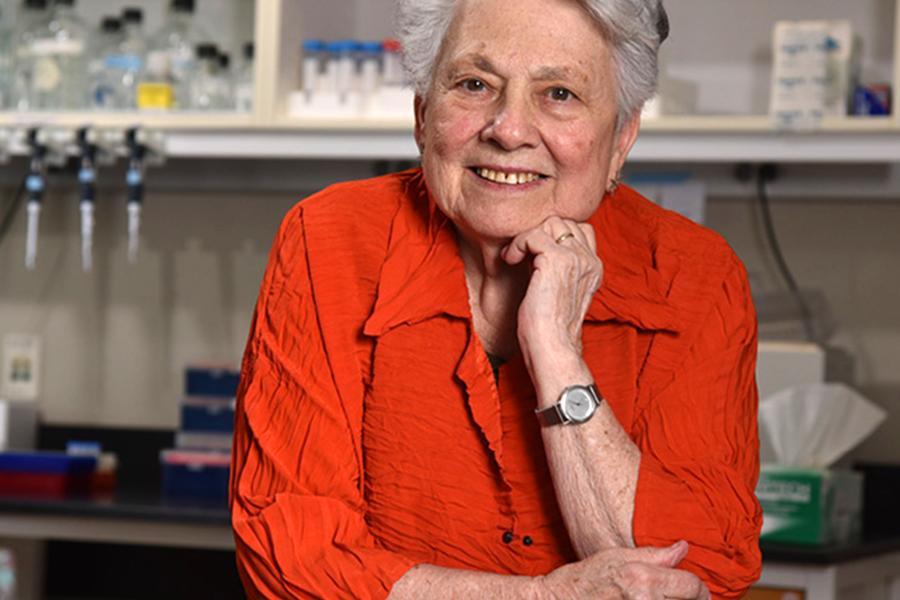Barbara Migeon, trailblazing pioneer and professor emeritus in genetic medicine at the Johns Hopkins University School of Medicine, died Jan. 14. She was 91.
Migeon was the sixth woman to reach the rank of professor at the Johns Hopkins School of Medicine.
She is known for pioneering genetics work in sex determination. Specifically, Migeon focused on the molecular basis of X-inactivation—the process in which one of a female's two X chromosomes is inactivated.
Migeon also studied the health and disease consequences of X inactivation—including mosaicism, in which the active X chromosome varies among cells in a female's body—and in 1980, she successfully cloned fragments of the human X chromosome.
"Barbara worked at Johns Hopkins during the early days of the genetic medicine field, and she has left a legacy of teaching and research that will continue to be the foundation for current and future geneticists and scientists," says Ambroise Wonkam, director of the McKusick-Nathans Institute and the Department of Genetic Medicine at the Johns Hopkins School of Medicine.
Born in Rochester, New York, Migeon graduated from Smith College in 1952 and the University of Buffalo medical school in 1956. She completed an internship and residency in the Johns Hopkins pediatrics department and a genetics fellowship under the direction of Johns Hopkins geneticist Barton Childs. In 1963, she became an instructor in the pediatrics department, and she continued as a member of the faculty until 2020.
Migeon is the founding director of the Johns Hopkins School of Medicine's human genetics graduate program. She mentored scores of medical students, graduate students, and researchers, even beyond her retirement. Migeon served on the editorial board of various scientific publications, and she published extensively about her research, including the book Females Are Mosaics: X Inactivation and Sex Differences in Disease and its second edition, which is considered the definitive review of the field.
"Barbara was a dedicated and forward-thinking educator," says David Valle, professor and former director of the genetic medicine department at the Johns Hopkins University School of Medicine. "She set a high bar for research quality and urged her students to adopt these same standards. In this way, Barbara contributed to everyone in the department, while she was a particularly strong advocate and role model for women students and faculty."
Migeon received the 2016 March of Dimes/Colonel Harland D. Sanders Lifetime Achievement Award in Genetics.
Her husband, Claude Migeon, who died in 2018, directed the division of pediatric endocrinology at Johns Hopkins from 1961 to 1994. She is survived by her children, Jacques Claude, Jean-Paul, and Nicole.
Plans are underway at Johns Hopkins for a memorial symposium.
Correction: An award Barbara Migeon received in 2016 was misidentified in an earlier version of this article. The Hub regrets the error.
Posted in Health, Science+Technology, University News
Tagged genetics, obituaries








